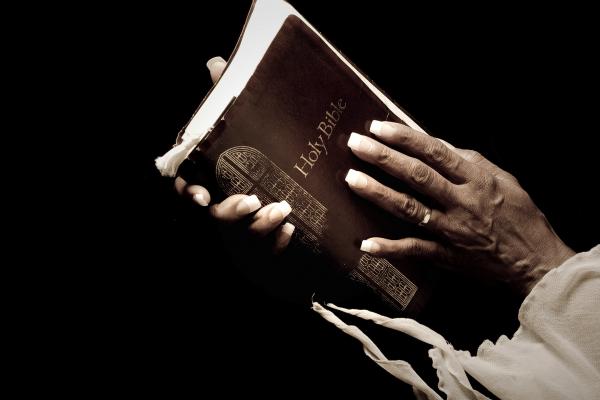I am many things — a feminist theologian, staff member at the Interfaith Youth Core, an active member of a United Methodist Church, an activist, and a mother in a transracial adoptive family. These roles are linked and each informs the other — I try to be accountable to multiple communities and am shaped by a myriad of contexts.
As such, I look up to and learn from women who model interconnected lives, are shaped by the wisdom of many spaces, and work for liberation of both themselves and communities of women.
Mercy Amba Oduyoye, mother of African feminist theology, is one of these inspiring models. Currently the director of the Institute of Women in Religion and Culture at Trinity Theological Seminary in Legon, Ghana, she has spent her life fighting poverty, violence against women, and global injustice; promoting women’s rights, education, and health; and writing, speaking, and teaching anti-colonial feminist African theology. Though there is much to learn from Oduyoye, there are three ways in particular that Oduyoye’s feminist interfaith leadership inspires me.
First, she attends to the intersection of multiple traditions in individuals, communities, and nations, and the ways that global power systems affect each of them. She demonstrates that complex histories lead to complex religious realities — ones that cannot be simply parsed out into separate religious or identity categories.
Oduyoye is from Ghana, a nation colonized by a number of Western European nations and Christianized by the empire’s missionaries (though, as Oduyoye points out, it was Christian long before European missionaries got there). The modern missionary movement, while deeply harmful in many ways, prompted Africans to engage, adapt, and contextualize Christianity for themselves. This led to a blending of indigenous religions and Christianity. Honoring this complex history, Oduyoye develops a distinctly African-Christian feminist theology that draws upon and honors the wisdom of indigenous religious traditions. She calls for an “indigenized Christianity,” hoping that, “As politicians succeed in weaning Africa away from the dependent mentality of a colonized people, theologians will succeed in stimulating the Christian people to a creative way of talking about God in Africa.”
Mercy Oduyoye also inspires me through her leadership of other women. Recognizing the dearth of African women theologians, she and her colleagues started The Circle of Concerned African Women Theologians. This Circle gathers African women from a diversity of religious traditions to tell their stories and share their wisdom.
According to their 2007 draft constitution, “The Circle seeks to build the capacity of African women to contribute their critical thinking and analysis to advance current knowledge using a theoretical framework based on theology, religion, and culture. It empowers African women to actively work for social justice in their communities and reflect on their actions in their publications.”
The Circle brings together women of diverse religious traditions, largely from Africa’s triple religious heritage — Christianity, Islam, and African Traditional Religions — to talk about theology, culture, patriarchy, and the needs of African women. As the creation of the Circle demonstrates, Oduyoye leads not by being the center of attention but by making a way for other women.
Oduyoye also inspires me in that she does theology that is relevant for the women in her communities. This is an important break with many academic and church traditions that do not attend to the day-to-day embodied realities of women’s lives. She emphasizes how the social, economic, political, and familial lives of women have everything to do with religion and theology.
Over the years, Oduyoye has challenged the Circle to address “issues of poverty, sexism, racism, cultural practices, rape, prostitution, sexual abuse, female genital mutilation, a patriarchal theology of enculturation, disparities in leadership, sub-par education, limited access to medical care, and most critically the impact of HIV/AIDS on African women and girls.”
Her theology remains connected to the concrete realities of the world, offering a radically contextual and relevant embodied theology.
Mercy Oduyoye models how to hold together multiple spheres of concern and influence within the church, community, and the academy. She teaches me the value of interfaith work that honors the multiple stories, beliefs, and histories that bring women to the table. She shows me that leadership does not mean staying at the center of attention or doing the work alone but rather means creating ways for others voices to be shared and other leaders to emerge. She values the voices that have been most silenced and listens to both the stories of suffering and those of joy.
Mercy Oduyoye is a woman to celebrate and a leader to emulate.
Got something to say about what you're reading? We value your feedback!

